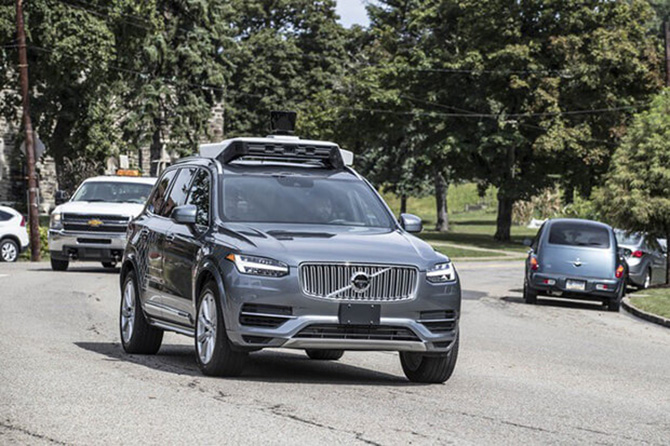Uber Resumes Testing Their Self-Driving Vehicles

Uber doesn’t really have a choice but to resume its testing of their self-driving vehicle as Waymo and GM have taken the lead with their autonomous vehicles.
Uber is starting up its autonomous vehicle test program once again after an eight-month break, due to the company pausing its self-drive program back in March when one of its autonomous vehicles struck and killed a pedestrian in Arizona. It was a terrible tragedy and if you recall, the Uber backup driver was recklessly watching TV on her phone instead of being in control of the vehicle.
Uber will no doubt start testing again slowly at first, beginning by limiting its autonomous cars to a one-mile stretch of road in Pittsburgh, Pennsylvania during daylight hours on weekdays. The cars will not exceed more than 25 miles per hour, with each vehicle carrying two Uber employees assigned to each test drive. These are important self-imposed restrictions in their attempt to earn back trust from the public and local governments by showing that it can responsibly test its technology on public roads.
This comes at a time when the other self-driving companies like Waymo, Alphabet's self-driving vehicle company, is launching a limited commercial autonomous ride-hailing service just a few weeks ago. They are not alone but General Motors will shortly be starting its own service sometime in 2019.
Before the fatal crash, the company had taken a much more aggressive approach to testing its autonomous vehicles but this has now changed and they will move forward much more cautiously than before.
Before now this company had placed self-driving vehicles on the road with flawed systems which even failed to recognize red lights, among other issues. Uber also defiantly continued to test its vehicles on California roads for a time even after it was told to cease due to having failed to renew its autonomous vehicle permits in the state.
Uber is now trailing behind self-driving vehicle leaders Waymo and GM and has lost a lot of gains in a burgeoning market that is set to see substantial growth in the coming years.
General Motors subsidiary self-driving company, Cruise Automation, has completed extensive tests of its cars and says it will launch an autonomous vehicle service sometime in 2019. GM is also working with Honda to develop a fully autonomous vehicle from the ground up. The companies stated in a press release that the vehicle will "serve a wide variety of use cases and be manufactured at high volume for global deployment."
Autonomous vehicles are not about research any more but real-world deployment. IHS Markit predicts that by 2040, more than 33 million autonomous vehicles will be sold annually worldwide. Mobileye, the self-driving tech company owned by Intel company believes that this technological shift will create a $7 trillion passenger economy by 2050.
So within just a couple of decades, the automotive world will be totally transformed the early developments that car manufacturers and tech companies build today could be worth billions down the road.
Author

Justin Kavanagh
Justin Kavanagh is a recognised leader
in automotive intelligence and vehicle
data supply to the entire motor industry.
He has almost 20 years experience in
building systems from the ground up.
As the Managing Director of Vehicle
Management System, he understands the
need and importance of trustworthy and
reliable vehicle history and advice to
both the trade and the public.
Follow me on LinkedIn